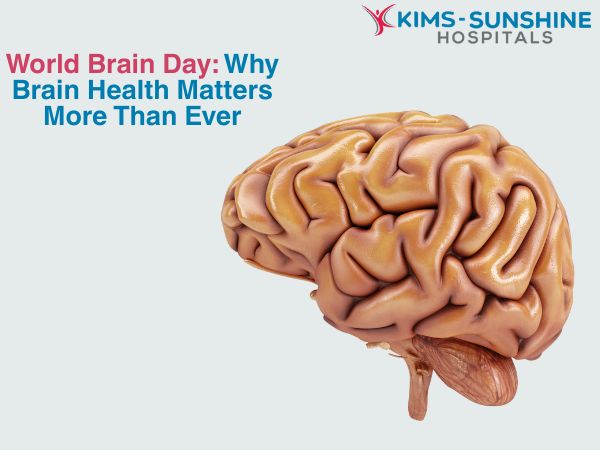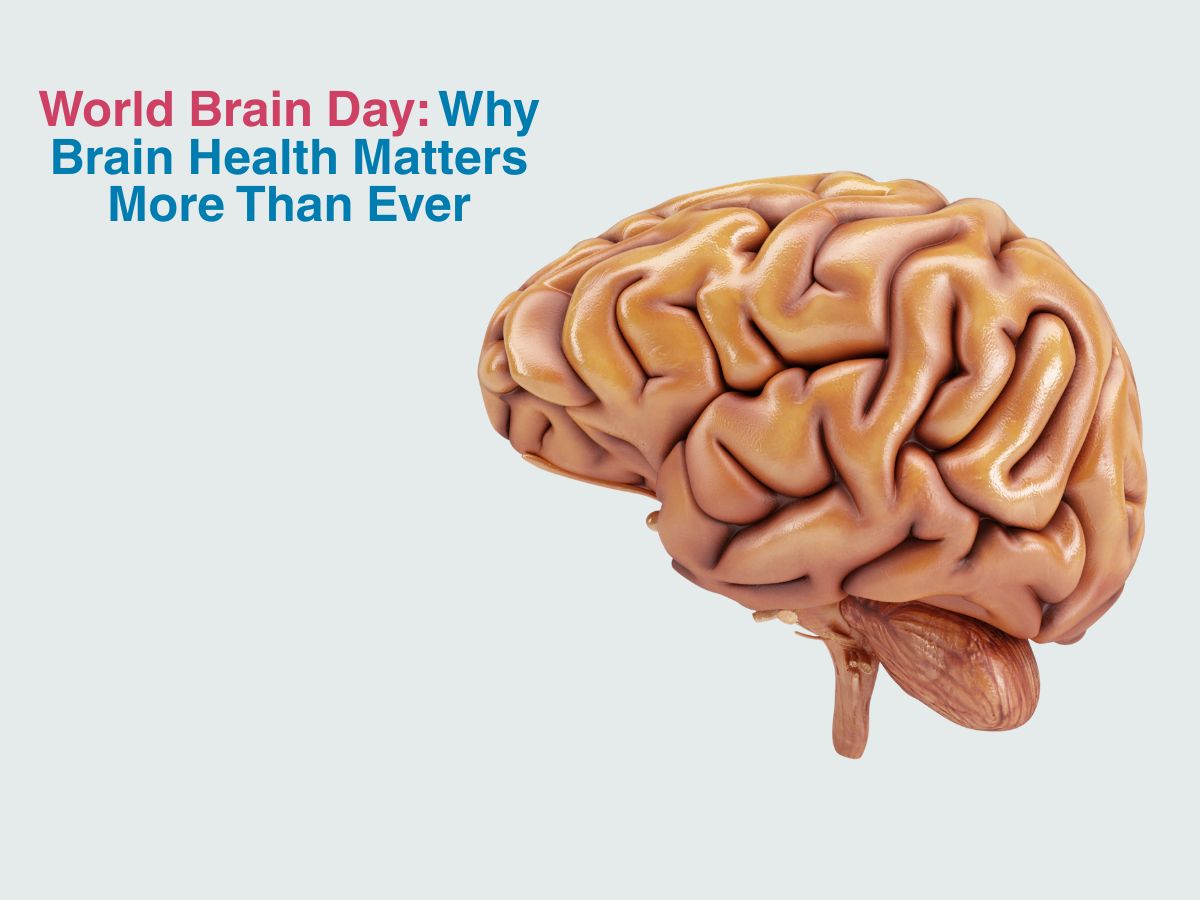
World Brain Day: Why Brain Health Matters More Than Ever

Introduction- When Is World Brain Day Celebrated Every Year?
22nd July is a day not just marked on calendars. It’s etched into the memory globally, thanks to the efforts of the World Federation of Neurology, with backing from the WHO and UN ECOSOC. This is more than a campaign. It’s a movement that gains momentum each year as brain health emerges from the shadows of specialty clinics into the mainstream of everyday wellness, because a healthy brain doesn’t just support a healthy body, it shapes how we remember, react, relate, and recover too!
What Is the Theme for World Brain Day 2025?
The theme for this year is “Brain Health for All Ages”. It is a rallying cry with both tenderness and urgency. It recognises that brain health is not a luxury for the elite, nor a need reserved for old age. It is a living, breathing responsibility for all, from newborns learning to grasp their mother’s voice to the elderly holding on to years of names, experiences and stories.
Why Brain Health Is Important for Overall Well-being
Today, neurological conditions rank as the second highest cause of death worldwide and are the leading contributor to disability-adjusted life years (DALYs). That statistic is not just medical. It is personal. It is the father who forgets his own name. The child who can’t focus in class. The executive whose stress fractures into panic. Good brain health means more than memory or IQ. It means emotional balance, decision-making, social skills and energy regulation. It is the headquarters of your lived experience.
How to Keep Your Brain Healthy As You Age
Brain care isn’t a checklist. It’s a craft, shaped by the choices you make daily and the storms you choose to walk through mindfully. Here’s how to nourish the mind at every age:
- Early Years: Keep them curious. Storytelling, play, art, and interaction wire the child’s brain for creativity, empathy, and problem solving.
- Young Adulthood: This is when stress starts to quietly eat away at their energy and confidence.Teach kids to pace themselves. Sleep and exercise are key now.
- Midlife: This is the decade where multitasking becomes a badge and burnout sneaks in. Prioritise downtime, learning new skills and leaning into hobbies that stretch your mind sideways.
- Later Years: Keep the lights on with language games, music, gardening, or even mentoring. Emotional connection is as critical as medication. Isolation is the enemy of neural health.
A healthy brain across the years is less about miracle cures and more about consistent habits. Repetition, rhythm and rest- these are the three Rs you need to really care about.
Signs of Declining Brain Health to Watch Out For
Our brains rarely shout. They whisper and those whispers matter.
- You misplace words or moments often – Not the odd forgetfulness, but a pattern that starts to disrupt daily flow.
- You feel untethered emotionally – When irritability, sadness or detachment appear for no clear reason, the brain might be under duress.
- You struggle with decisions – Even simple choices begin to feel like mental heavy-lifting.
- Your sleep is fractured or vivid with unrest – The quality of your sleep says more about your brain than you think.
- Your movement is subtly off – A slight tremor, slowed walking, or balance issues can often precede deeper neurological concerns.
- Your focus feels like it has holes – You start tasks and forget what you were doing or you read a page and realise you’ve absorbed nothing.
These aren’t always signs of disease, but they are the body’s internal flags. Listening early could change everything.
Why Brain Health Is More Important Now Than Ever
Mental health crises are rising. Neurodegenerative diseases are appearing earlier. Even children show signs of emotional dysregulation. If your brain is the battery pack of your being, modern life is draining it faster than you can get it to recharge. Caring for your brain today means you are guarding your future – your autonomy, relationships, dignity and joy.






